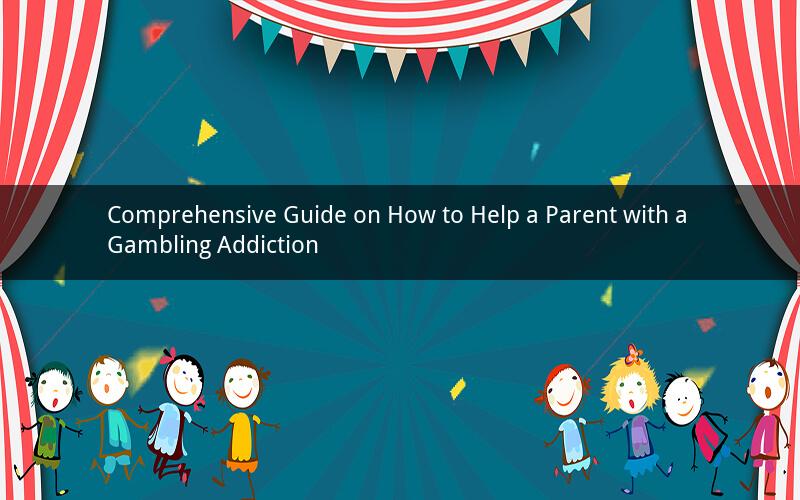
1. Introduction
Gambling addiction, often referred to as compulsive gambling, is a severe problem that can impact not only the addicted individual but also their family and friends. If you have a parent who is struggling with a gambling addiction, it is crucial to understand the nature of the addiction and the most effective ways to offer support. This guide will provide you with insights on how to help a parent with a gambling addiction.
2. Understanding the Gambling Addiction
Before attempting to help your parent, it is important to understand the nature of the addiction. Compulsive gambling is characterized by an irresistible urge to gamble, regardless of the consequences. Here are some key aspects of gambling addiction to consider:
- Loss of Control: The addicted individual finds it difficult to stop gambling, even when it causes significant financial, emotional, and social problems.
- Preoccupation: Thoughts about gambling occupy much of the individual's time, and they may even plan their activities around gambling.
- Lying: They may lie to conceal the extent of their gambling and its negative consequences.
- Increased Risk-Taking: Gamblers often take increasingly higher risks to recover their losses or to sustain their gambling behavior.
3. Encouraging Communication
Communication is vital in helping a parent with a gambling addiction. Here are some steps you can take to encourage open and honest communication:
- Create a Safe Environment: Ensure your parent feels safe and supported when discussing their gambling addiction. Avoid judgment and anger, which can lead to further denial and resistance.
- Listen Actively: Pay attention to your parent's words and emotions. Show empathy and understand that they may feel ashamed or embarrassed about their addiction.
- Ask Open-Ended Questions: Encourage your parent to express their feelings and thoughts about their gambling addiction. Questions like "How do you feel about your gambling?" or "What has gambling done to your life?" can be helpful.
4. Encouraging Professional Help
It is crucial for your parent to seek professional help for their gambling addiction. Here's how you can support this process:
- Research Treatment Options: Provide information on different types of treatment programs, such as inpatient or outpatient rehab, counseling, and support groups.
- Encourage Them to Seek Help: Remind your parent that seeking help is a sign of strength and that they are not alone in their struggles.
- Attend Therapy Sessions: Offer to attend therapy sessions with your parent to provide support and encouragement.
5. Financial Assistance and Resources
Financial assistance is a critical aspect of helping a parent with a gambling addiction. Consider the following strategies:
- Financial Counseling: Help your parent find a financial counselor who can help them manage their debt and develop a budget.
- Community Resources: Research community resources, such as local charities or organizations that offer financial assistance or debt counseling for individuals with gambling problems.
- Setting Boundaries: Limit access to funds and establish strict spending rules to prevent further financial strain.
6. Taking Care of Yourself
Caring for a parent with a gambling addiction can be emotionally and physically draining. It is important to take care of yourself to ensure you are in a position to provide effective support:
- Seek Support: Join a support group for family members of individuals with gambling problems to connect with others in similar situations.
- Set Boundaries: Establish clear boundaries to protect your mental and emotional well-being.
- Prioritize Self-Care: Engage in activities that promote relaxation and stress relief, such as exercise, meditation, or hobbies.
7. Long-Term Support
Recovery from a gambling addiction is a long-term process, and it is important to continue supporting your parent even after they have completed treatment. Here are some tips for long-term support:
- Celebrate Milestones: Acknowledge and celebrate the progress your parent has made in their recovery journey.
- Encourage Continued Treatment: Encourage your parent to participate in ongoing support groups or counseling sessions.
- Maintain Open Communication: Continue to communicate openly and honestly with your parent about their progress and challenges.
8. Conclusion
Helping a parent with a gambling addiction can be challenging, but it is essential to provide them with the support and resources they need to overcome this problem. By understanding the nature of the addiction, encouraging communication, seeking professional help, offering financial assistance, taking care of yourself, and maintaining long-term support, you can play a crucial role in your parent's recovery.
Additional Questions and Answers:
1. Question: Can a parent recover from a gambling addiction on their own?
Answer: While some individuals may seek help on their own, it is often more effective when they receive support from friends, family, and professionals.
2. Question: What is the most effective way to approach a parent who has a gambling addiction?
Answer: The most effective way is to create a safe and supportive environment, listen actively, and offer empathy rather than judgment or criticism.
3. Question: Can a parent's gambling addiction lead to legal problems?
Answer: Yes, a parent's gambling addiction can lead to legal problems, such as debt-related issues or embezzlement, depending on the extent of their gambling.
4. Question: How can I support my parent if they are reluctant to seek help?
Answer: You can support your parent by researching treatment options, providing information on resources, and offering to attend therapy sessions with them.
5. Question: Is there a difference between problem gambling and gambling addiction?
Answer: Yes, problem gambling is a milder form of gambling-related issues, characterized by financial, emotional, and social consequences, while gambling addiction is a more severe and compulsive disorder.